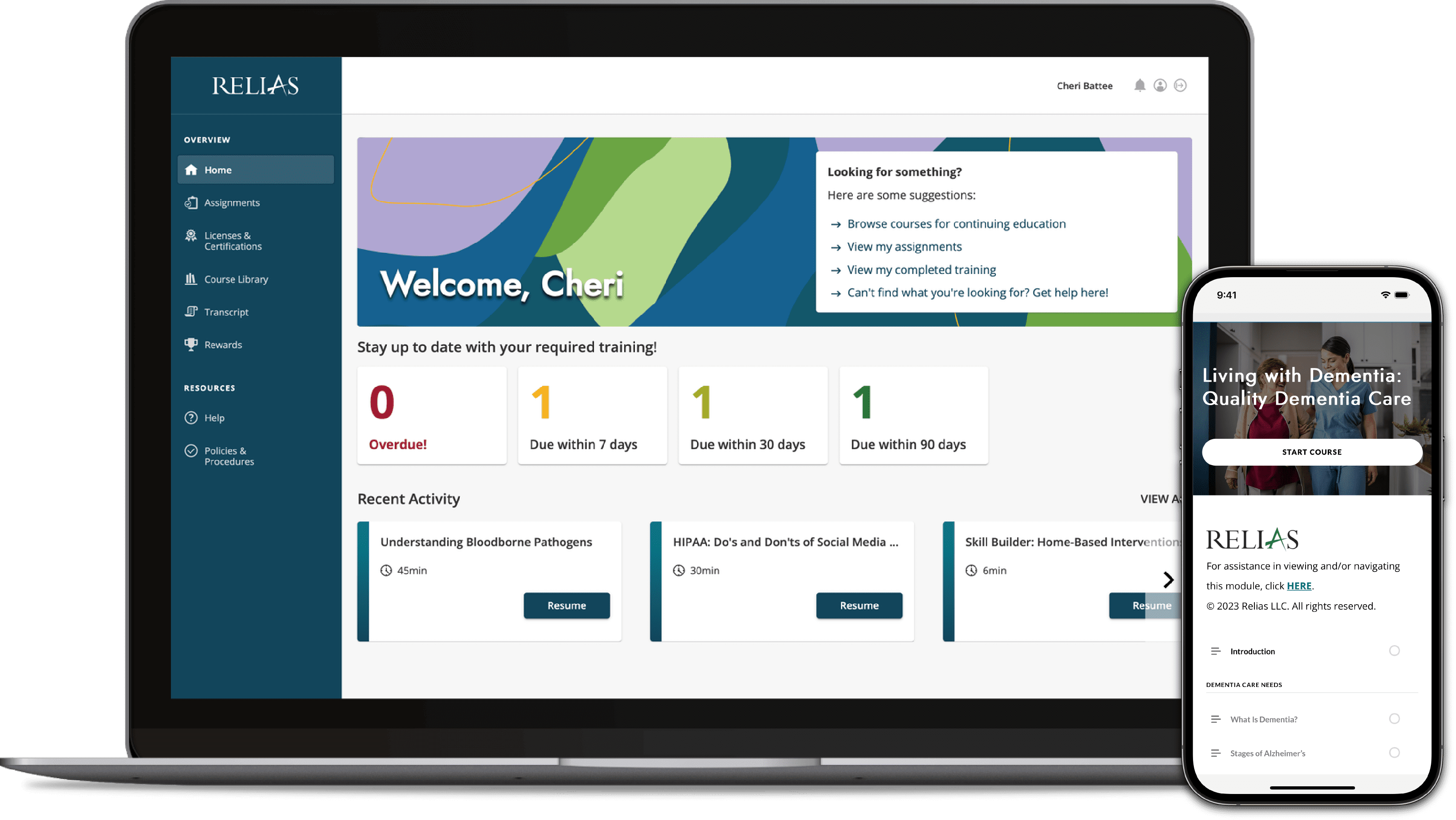Preparing Your Organization
For long-term care and home-based care organizations, providing memory care can open new revenue streams, differentiate you from your competitors, and offer more complete care options for your residents or clients.
As the population of Americans living with dementia increases, more families will seek expert caregivers to help look after their loved ones.
Dementia care can be difficult because not all patients will experience the disease in the same way. It may affect a person’s mood, thoughts, motor activity, and personality. Difficult behaviors that people who have dementia may exhibit include:
- Repeated calls and contacts
- Losing items
- Being rude or threatening
- Striking out at others
- Wandering or getting lost
- Refusing care
The following physical health challenges can also complicate dementia care:
- Eating or drinking less
- Falling
- Lacking solid, recuperative sleep
- Developing infections and pneumonias
Clinicians and direct care workers need tools to provide the personalized care that will most positively affect client or resident outcomes. Without the proper training and resources, caregivers may be ill-equipped to manage the needs of those with dementia. This can raise stress levels of your staff, leading to more frequent turnover, and increase risk for care recipients.
Blog Posts
Supporting the Competence of Dementia Care Teams
Higher staff turnover in healthcare is associated with lower quality of care. Learn how you can support your dementia care team’s competence.
Connecting to People Living With Dementia
Connecting to people living with dementia can be challenging. Learn some verbal and nonverbal techniques to improve interactions with those living with dementia.
Dementia Care: Understanding Behaviors and Managing Challenges
Discover effective strategies for caregivers to understand and manage challenging behaviors in dementia care. Learn how to reduce stress, validate the point of view of someone with dementia, and create positive experiences.
Sample Course: A Virtual Dementia Experience
Dementia Care Resources
Teepa Snow Dementia Care Training

Teepa Snow is a dementia-care education specialist with a background in occupational therapy and close to 40 years of clinical practice.
Her GEMS® State Model for understanding progression and change in ability, combined with her Positive Approach® to Care (PAC) Skills, form practical and effective strategies and techniques for individuals and agencies seeking to optimize care and support for those living with dementia and their care partners.
These user-friendly approaches provide guidance and leadership to national efforts to promote best practices. PAC is collaboratively working to change the culture of dementia care, one mind at a time in over 30 countries worldwide.
Relias has partnered with Teepa Snow to provide our clients with the best on-demand dementia care training Teepa has to offer.
To help get you familiar with her approach to dementia care, view our Teepa Snow course preview video. Teepa’s courses are part of our Advanced Dementia/Memory Care library.
Courses Recognized By The Alzheimer's Association®
Our Advanced Dementia/Memory Care library includes courses recognized by the Alzheimer’s Association® for successfully incorporating the evidence-based Dementia Care Practice Recommendations in the following topic areas:
- Alzheimer’s and dementia
- Person-centered care
- Assessment and care planning
- Activities of daily living
- Behaviors and communication
Providers who train their staff with this recognized curriculum are eligible to purchase the Alzheimer’s Association essentiALZ® certification exam.
Enhance your dementia care training
Your patients or residents with memory care needs deserve the best possible care. Relias’ Advanced Dementia/Memory Care library offers an extensive set of courses to keep your staff up to date with the latest best practices in dementia care from industry leaders including Teepa Snow.
Using the Relias Platform, our online learning management system, you can easily assign, track and report on the progress of your staff, as well as:
- Reduce risk for your residents by providing more consistent, high-quality care.
- Increase staff retention by reducing stress and frustration.
- Make sure no staff member gets left behind; easily track their engagement with Relias courses.







